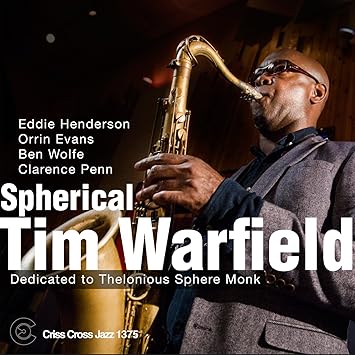To call the jazz pianist Harold Mabern a legend is a gross understatement. Piano God would be a more fitting distinction. Mabern's musical history would take weeks to adequately breakdown. Worth touching on, however, is his affinity for accompanying vocalists. Chances are vocalists from all walks of life have Mabern on speed dial. At the center of his new album “Afro Blue,” are some of today’s top-tier jazz vocalists. Smoke Sessions Records made it available April 14th. Mabern invited to the studio jazz vocalists Gregory Porter, Kurt Elling, Norah Jones, Alexis Cole, and Jane Monheit. The result is a house party of sorts. Porter gets the party rolling on the title cut and “The Man from Hyde Park”. Elling is the life of the party, which isn’t surprising, he stands toe-to-toe with Mabern on “Billie’s Bounce”. Jones pour her voice all over Mabern’s piano on “Fools Rush In” and on “Don’t Misunderstand”.
Detroit vocalists Ashaki Zeigler started hand stitching her career in the mid-90’s in the late jazz pianist Harold McKinney’s workshop The Detroit Artist and Jazz Performance Lab at the Serengeti Ballroom. Then she moved to the late pianist Teddy Harris’s jam session at Baker’s Keyboard Lounge. Often she was the only vocalist present. She held her own amidst a bunch of grandstanders. Over the years, Zeigler continued to grow artistically.Unfortunately Zeigler isn’t a household name yet as some of Detroit’s high echelon jazz female vocalists like Ursula Walker, Barbara Ware, and Audrey Northington. What Zeigler shares in common with those greats is class. Zeigler’s self-produced duet album “Remember The Way” shows she is comfortably proficient in jazz, R&B, smooth jazz, too. On top of that, she has the kind of voice you’d love to sing you to sleep every night. For proof, listen a few times to the title cut, which closes the album. The cuts likely to get the most water cooler talk are “Bye Bye Blackbird” and “Shakin’ It Off,” “The Nearest of You,” and Zeigler’s duet with bassist Ralphe Armstrong, the album’s co-producer.
“Take This” is pianist Jacky Terrasson’s first album for Impulse Records. Terrasson made three dazzling trio albums for Blue Note Records. He is uninterested in making run-of-the-mill jazz albums it seems. “Take This” has the pianist diving deep into that freaking glorious imagination of his and returning to the surface with fresh takes on some jazz oldies like “Un Poco Loco,” “Blue In Green” and two extraordinary takes of “Take Five”.
Alto saxophonist Vincent Herring has a blow-the-roof-off-the-sucker mentality, which is in plain view on his new album “Night and Day” Smoke Sessions Records will release the gem May 12th. Herring covers some familiar ground, stretching out on “Fly, Little Bird, Fly,” “Wabash,” “There Is Something About You (I Don’t Know). These selections sound even grander with Herring support staff pianist Mike LeDonne, bassist Brandi Disterheft, drummer Joe Farnsworth, and trumpeter Jeremy Pelt.





